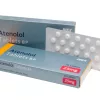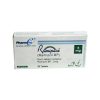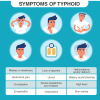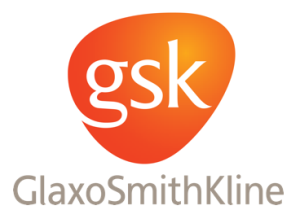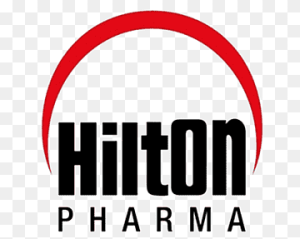No products in the cart.
Propranolol | A Beta-Adrenergic Receptor Antagonist
| Introduction | Propranolol, available under the brand name of Inderal is a non-selective beta adrenergic antagonist is used to treat a variety of conditions, including hypertension, angina, atrial fibrillation, myocardial infarction, migraine, essential tremor, and hypertrophic subaortic stenosis. | ||||||||||||||||||||
| Pharmacodynamics | Propranolol belongs to a beta-adrenergic receptor antagonist is used to treat hypertension. Given once or twice daily, depending on the indication, propranolol has a long duration of action. Patients who quit taking propranolol abruptly risk worsening of their angina and myocardial infarctions. The S(-)-enantiomer of propranolol, a racemic combination of two enantiomers, has roughly 100 times the binding affinity for beta adrenergic receptors than the R(-)-enantiomer. 9 The most prevalent illness for which propranolol is prescribed is hypertension. | ||||||||||||||||||||
| Mode of Action | Nonselective beta-adrenoreceptor antagonist Propranolol is also categorized as a class II antiarrhythmic. It responds by competitively blocking the heart’s normal epinephrine and norepinephrine-induced beta-1 and beta-2 adrenergic activation. On cardiac myocytes, including the sinoatrial and atrioventricular nodes, there are beta-1 receptors. These receptors are activated, which results in an increase in cyclic AMP and an increase in intracellular calcium. Increased muscle fiber contractility results from this mechanism. Beta-adrenergic receptor blockade causes the heart’s overall workload to be reduced, which in turn lowers oxygen consumption and causes myocardial remodeling. [8] | ||||||||||||||||||||
| Indications | Hypertension can be treated with propranolol. Additionally, myocardial infarction, atrial fibrillation, migraine, essential tremor, hypertrophic subaortic stenosis, pheochromocytoma, and proliferating infantile hemangioma are all conditions for which propranolol is prescribed. | ||||||||||||||||||||
| Availability & Usage | Beta-blockers are processed mostly in the liver, like the majority of drugs ( both the active and inactive compounds). Due to first-pass metabolism in the hepatic circulation, only around 25% of the medicine consumed enters the systemic circulation. Propranolol’s active metabolite, 4-hydroxypropranolol, is created via hydroxylation with the help of the CYP2D6 enzyme. You can administer propranolol intravenously or orally. Continuous ECG monitoring should be done while a gradual infusion is administered intravenously. This method of administration is most frequently used in inpatient settings. The dosage of propranolol varies, mainly depending on the ailment it is used to treat. | ||||||||||||||||||||
| Side Effects | Bradycardia, gastrointestinal problems, abdominal pain, nausea, erectile dysfunction, and wheezing/bronchospasms are some of the most typical side effects of using propranolol. Use of propranolol may also result in weariness, drowsiness, and cold extremities. Hallucinations, insulin resistance, and allergic reactions are a few severe side effects to be aware of. Before writing a propranolol prescription for a patient, prescribers must go over all the side effects with them. | ||||||||||||||||||||
| Drug Interation (while taking with other medicine) |
| ||||||||||||||||||||
| Important Warning | In some cases, propranolol may result in heart failure. If you experience chest pain or discomfort, dilated neck veins, intense exhaustion, erratic breathing, an irregular heartbeat, swelling of the face, fingers, feet, or lower legs, or weight gain, consult your doctor immediately once. | ||||||||||||||||||||
| Available Brands | Inderal |

